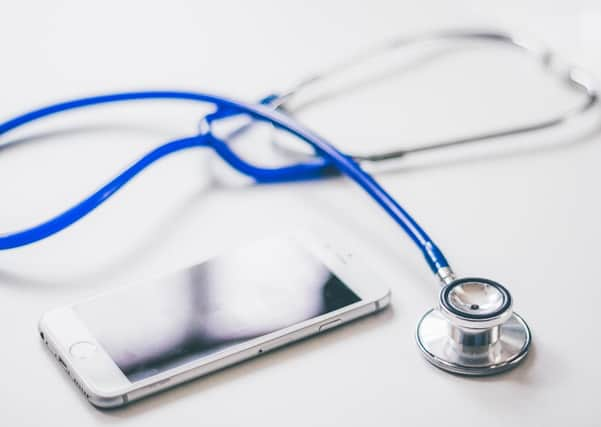Please continue to use Greater Glasgow and Clyde’s health services


The call comes following a marked reduction in Urgent Suspicion of Cancer (USOC) referrals from GPs – potentially due to anxiety around COVID-19 causing less people to seek medical attention.
A decrease in the number of people seeking urgent non-COVID-19 medical attention at Emergency Departments and Minor Injuries Units (MIUs) similarly reflects a potential change in public attitude towards seeking medical care in the current circumstances.
Advertisement
Hide AdAdvertisement
Hide AdHowever, as part of contingency planning, capacity has been maintained within the health service and the appropriate patient pathways have been developed to ensure business continuity for all urgent care requirements in both primary care and acute settings across Greater Glasgow and Clyde.
Any patient requiring urgent hospital care will be safely assessed and cared for through Emergency Departments and (MIUs), and people should contact their GP as normal to discuss any non-COVID-19 health concerns so they can be referred on for further assessment as early as possible.
While the patient pathway may have changed, the course of action remains the same. All GP surgeries across Greater Glasgow and Clyde remain open. Patients will initially be assessed over the phone by a clinician who they can talk to about symptoms. If required, a follow up video consultation or face-to-face appointment will take place at their practice.
In case of a medical emergency, people should not delay in contacting 999 for assistance.
Advertisement
Hide AdAdvertisement
Hide AdPatients suspected of having cancer should rest assured if they are referred on to the hospital that specialty teams will arrange assessment for them as quickly as possible.
Patients may be offered telephone or video (attend anywhere) appointments with their consultant, rather than visiting the outpatient clinic.
They may be offered tests such as a specialized scan as a first assessment, with appropriate advice, reassurance, or, a follow up appointment and plan for further investigations, if required.
Every precaution has also been taken to shield patients from COVID-19. If they require to visit a hospital site, staff will work with them to provide specific times to attend via safe pathways separate from other patients. If transport is required, this can be provided as well. All staff are trained in the correct procedures and will be wearing appropriate PPE to ensure that neither the patient, nor anyone else is put at risk.
Advertisement
Hide AdAdvertisement
Hide AdDr Scott Davidson, Deputy Medical Director for Acute at NHSGGC, said: “We understand the COVID-19 pandemic may have made people anxious about accessing healthcare services in the same manner they would previously have done. However, we cannot stress enough that capacity for urgent care remains in place.
“It’s crucial that if people have symptoms that are of significant concern and may reflect an underlying serious illness such as cancer, that they are assessed as quickly as is possible.
“While the method of delivery may have changed, across acute, we are working closely with primary care colleagues to ensure patients are managed appropriately and efficiently as normal.
“Any changes to service have made, as always, are underpinned by person centred care, and patient safety and wellbeing are our utmost priorities.
“The sooner you are able to be assessed, the sooner we can put you on the appropriate care pathway.”
Comment Guidelines
National World encourages reader discussion on our stories. User feedback, insights and back-and-forth exchanges add a rich layer of context to reporting. Please review our Community Guidelines before commenting.